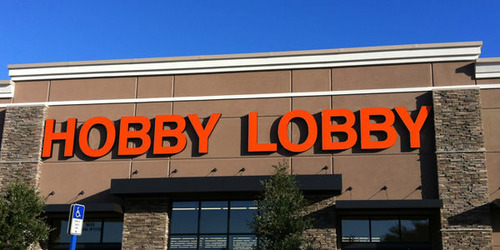
By: Laura Owsiany
With the deluge of information circulating about the Supreme Court’s decision in Burwell v. Hobby Lobby on Monday, it can be hard to extract facts from opinions.
The Supreme Court ruled Monday in favor of Hobby Lobby, a for-profit company objecting to the Affordable Care Act’s provision for mandatory contraceptive coverage.
The court ruled that under the Religious Freedom Restoration Act (RFRA), companies would not have to finance birth control methods incommensurate with the religious beliefs of their owners, provided the companies were “closely held,” as Justice Samuel Alito stated in the court’s majority opinion.
For-profit companies run by a small group of owners, according to Alito, have the same right to opt-out of contraceptive coverage as non-profit organizations. But in order not to deny employees access, he proposed the government fund contraceptive coverage to make up for the loss.
All three female justices, Ruth Bader Ginsberg, Sonia Sotomayor, and Elena Kagan, along with Stephen Breyer, voted against the ruling. Ginsberg wrote the court’s dissent, arguing that “legions of women” would lose access to contraception.
“In the Court’s view, RFRA demands accommodation of a for-profit corporation’s religious beliefs no matter the impact that accommodation may have on third parties…” she wrote.
Alito’s opinion directly contradicts Ginsberg.
“We do not hold, as the principal dissent alleges, that for-profit corporations and other commercial enterprises can ‘opt out of any law…’” he wrote.
The two opinions’ incongruity mirrors the public reaction.
Arguments have flown in the media blitz surrounding Hobby Lobby, and debate has centered on a few key questions.
First, some have questioned the ethics of allowing exemptions from healthcare coverage when moneymaking, not altruism, is the primary goal. Alito claims for-profits can still pursue altruistic goals, and still deserve the freedom of religion.
This brings the conversation to the alleged personhood of corporations. Some (The Progressive, Slate, John Oliver) believe the ruling has expanded the legal treatment of companies as people by endowing them freedom of religion. Online media site Vox shot back that corporate owners are people whose rights should be protected, and that the ruling does not claim corporate personhood.
Finally, most coverage has emphasized the standoff between religious and women’s rights.
Women’s groups have argued women’s right to bodily autonomy. Planned Parenthood called the ruling “Government intrusion at its worst.” Feminist sites Mother Jones and Jezebel have echoed Ginsberg’s statement that, “the ability of women to participate equally in the economic and social life of the nation has been facilitated by their ability to control their reproductive lives,” which they say the ruling restricts.
Alito’s proposed solution for birth control access, they say, has done little to ease women’s access. Garrett Epps forThe Atlantic wrote Monday that “female employees [would] pay for their contraception twice, first with their labor and second with tax dollars, in order to spare the Greens and the Hahns even a moment’s discomfort.”
Conversely, Ron Paul advocated for greater appreciation for religious rights Wednesday on The Glenn Beck Showsaying, “The claim is that women have a right to free birth control. And yet they never talk about the rights of the person that has to provide these demands.”
News has since broken that the decision is not limited to the forms of contraception Hobby Lobby opposed.
The Los Angeles Times reported Thursday that the Supreme Court handed down orders that extend the Hobby Lobby decision to six other cases in which Catholic-owned companies contested any kind of contraception.
Thursday also brought a decision in favor of Wheaton College, a small Illinois institution that argued it need not register religious objections to contraception. The Hobby Lobby ruling now allows the college to “operate outside the mandate” of the Affordable Care Act, The Washington Post reported Friday.
Non-profits, in light of the Hobby Lobby decision, though previously afforded the right to withhold contraceptive care on religious grounds, are finding the existing method of registering objections under the ACA cumbersome. Many more besides Wheaton are now expected to seek the same exemption, and stir still more public agitation.
The opinions and dissents can be found at: http://www.supremecourt.gov/opinions/13pdf/13-354_olp1.pdf
